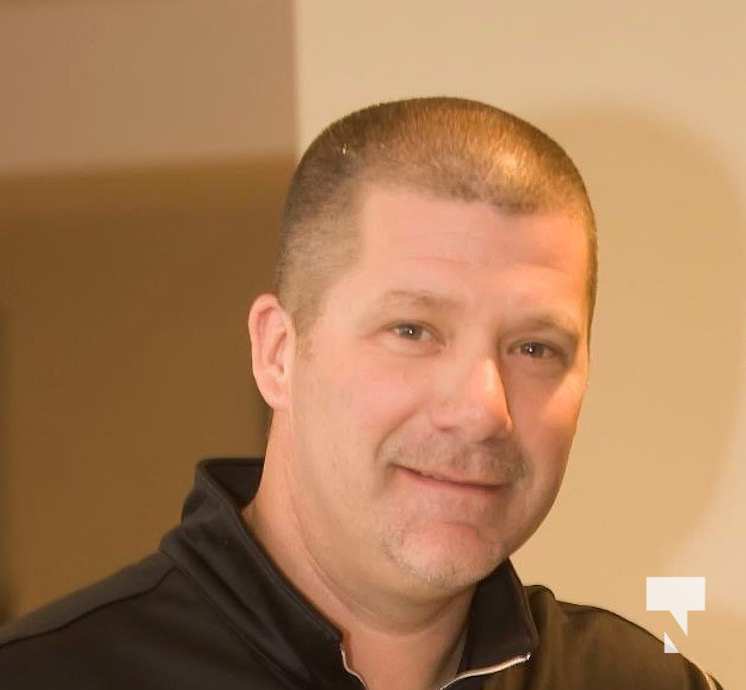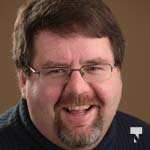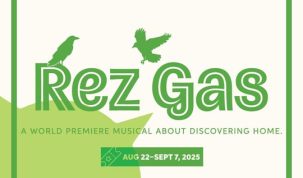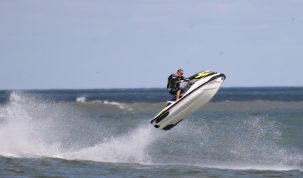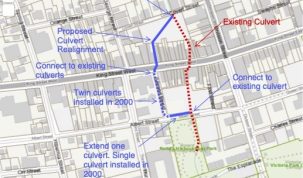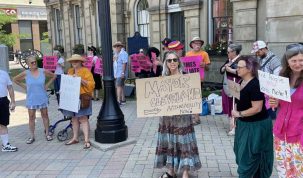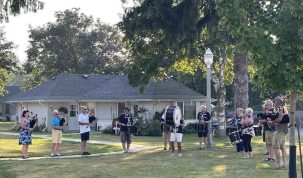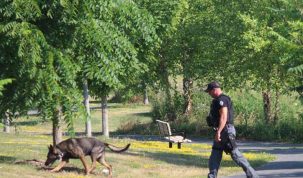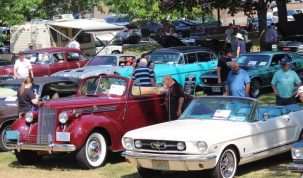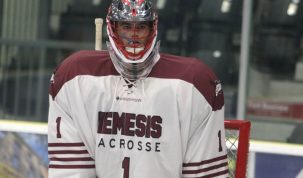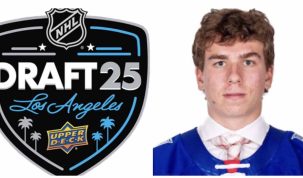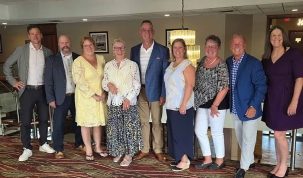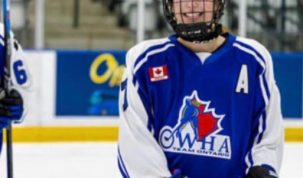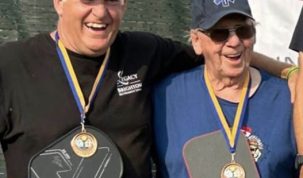Jeff Gard of JG Sports Media recently spoke with Port Hope’s Paul Quantrill, who pitched 14 seasons in Major League Baseball, for his website jgsportsmedia.com.
JG: The last time I interviewed you a few years ago, it was actually a story about your son Cal before he went off to Stanford University. Last year he made his MLB debut for the San Diego Padres, so the first thing I was to ask you, if you can put it into words, is: can you compare what it was like the feeling for you pitching on an MLB mound to watching Cal pitch on a MLB mound?
Quantrill: Well, that’s an easy one, Jeff. Pitching on a Major League mound for me, especially when I was young oddly enough, I wasn’t very nervous. Even in my debut I didn’t have probably the butterflies I probably should’ve, but I always felt like I had some control over the outcome. Sometimes that outcome was obviously poor, but when you’re watching your son, it is hard, it’s very hard. I had more butterflies watching Cal and more nervousness than I think I ever had in any game I ever pitched in.
JG: A year ago on May 25, Cal started for the Padres against the Blue Jays in Toronto and I think there was maybe a couple hundred family and friends from Port Hope there and he picked up his first MLB win. That must have been an incredible experience for you and the family.
Quantrill: It was a fun day. Obviously we all enjoyed it and it went well for Cal. All his buddies, I’m sure they went out and misbehaved afterwards. It was odd for me because I work for the Blue Jays, I was in the clubhouse around our guys and suddenly my son is pitching against them. Justin Smoak was about to tear my head off because Cal almost drilled him that game so he had words for me and I said, ‘Well, it wasn’t me.’”
JG: As mentioned, Cal went the NCAA route with Stanford. You also pitched at the NCAA level, you were with the University of Wisconsin-Madison. What were your early baseball years like, even before you went to university and then how did university ball prepare you for the big leagues?
Quantrill: For me growing up in Canada, but we moved a lot, my father worked for General Motors and we moved all over…North America and the world. We moved over to London. So I played more hockey, loved baseball though, and then when I moved to Michigan, they’re not very good at hockey compared to home here, so I decided baseball would be my primary sport. When I played I just had fun. I loved playing baseball, that’s probably why it worked out, went to college when I realized and figured out the system over there that wow they’ll pay for me to go to school, which I wanted to go to school regardless of baseball. When you can go on a scholarship, have a set group of friends from day one because you’re part of a team and likeminded people, people that want to be successful. Sport brings so much to our lives, I believe, it did for me anyway. School was my priority, it really was, but the baseball thing worked out when the Red Sox came calling in the draft I decided that hey this is just the next step in the evolution of this and it’s going well and I loved playing baseball so I gave it a shot and thankfully it worked out. During the time as I was getting to the big leagues and even in the big leagues, I went back every fall and finished up my degree, so I was happy to do that.
I will say, the one thing about school whether it’s high school, but more importantly even college, I think what helps us a lot is you learn to learn. I certainly don’t stand on the mound and use my calculus from college, but I learned to learn and to get better every day. From my standpoint, that’s what schooling brings for us.”
JG: Your first two seasons in the big leagues were ’92 and ’93, coincidentally the same years the Blue Jays were winning World Series. You were on another team, but what was it like for you watching a Canadian team win the World Series?
Quantrill: It was awesome seeing them win the World Series and I was at the game when Carter hit the home run. Obviously our season had been over, I was with the Red Sox. From my standpoint, playing in the same division in the American League with the Red Sox, I really didn’t like watching the Blue Jays much when I was standing on the mound. They were something to be reckoned with. That’s one of the greatest teams of all time, I believe, both years.”
JG: Were you in the stadium when the Jays went back to the playoffs in 2015? I was at what is referred to as the bat-flip game (Game 5 of the ALDS against the Texas Rangers) and I could not believe the atmosphere in that stadium.
Quantrill: I was actually sitting in the clubhouse watching on TV, but ran down when that got…I had never seen anything like it. Never in Toronto or actually anywhere I’ve been, I can’t remember an atmosphere (like it)…the only thing close I was part of was playoffs with the Yankees and Red Sox. It was similar, but I’ve got to say the atmosphere in Toronto was something special.”
JG: After the Red Sox and a short stint with the Philadelphia Phillies, you were traded to the Blue Jays. That must have been special and I know you started being able to commute from Port Hope to the dome every day.
Quantrill: It was like playing summer ball and I just got to play in a nice stadium and they paid me to play. It was cool, I got to be home, I got to go on field trips with my kids in the mornings and be a somewhat regular dad. It was a very special time in our life for six years playing with the Jays and oddly enough I left less tickets and had almost less pressure on me from a friends and family perspective than I did in any other place. Every other place we had our separate life, which we called our baseball life, and people would come and see us. I was always our family’s excuse to go on a trip to Philly, to Boston, to Los Angeles which was fine, we got to see family and friends, but it could be hard and on the road. In Toronto, everyone just watched on TV and I just felt like I was literally playing men’s league baseball, but had a little longer commute.
JG: I want to ask you about some guys you pitched with in Toronto…you witnessed three straight Cy Young performances with Pat Hentgen in ’96 and then back-to-back Roger Clemens in ’97-98 so that must have been pretty special to watch.
Quantrill: As far as Clemens, he’s probably, arguably, the greatest of our generation. He was a little ahead of me, but I got to play with Roger for two, three years in Boston as well so we had a lot of time together and he was an absolute beast. When Roger had it going on, it was almost ruthless for the other team. He was that special. I would say of the three and probably in all my years playing, my favourite Cy Young winner to watch was Hentgen. Pat’s still one of my very best friends, one of the best people I ever played with and I’m telling ya, that guy just goes out there and competes, never excuse, held himself accountable, great teammate. He wasn’t blessed with Clemens-type stuff, but he was such a bulldog. It was just a pleasure to watch him go about his business that year and have such a successful year and ultimately win the Cy Young, although he barely won it. Closest voting to that date and part of that was because the other guy was Andy Petitte out of New York, they get a lot more exposure. Good thing Pat won it because he definitely deserved the Cy Young and that would be my favourite watching a teammate have success.
JG: One of my favourite pitchers was Roy Halladay. What can you remember about Roy as a young guy? His demotion to Dunedin before he came back as a dominant player has been well-documented, but what do you remember from being up close and personal to that situation?
Quantrill: I remember when Doc came up he was somewhat of a rockstar, obviously he’s our first-round pick, everyone knows he’s got special talents and then when he got there it was clear. First couple games he almost threw a no-hitter, but frankly he wasn’t ready in my opinion for the big leagues. The emotional and the mental part of it, it’s hard, it’s a really hard job. I know people think we’re just playing baseball, but for some people and for Roy it was very difficult. He kind of just seemed to struggle through the first year-and-a-half of his career and you could still see he was going to have some success because he was so specially physically, but it wasn’t until he ultimately really, really failed and went back and got the demotion and then Mel Queen and others helped him. It’s the single biggest turnaround and I would say it’s the single biggest accomplishment that I ever saw and overcoming adversity in my career, by far. To really struggle as bad as Roy did and to come back as a new pitcher in many ways, but emotionally and mentally be so, so very tough on the second go-around, I’ve never seen anything…everything else pales in comparison. I was proud of Doc and I knew him before he was Doc, it was just Roy and Roy was tripping over himself like lots of rookies do. We remained friends for years, I miss Roy, he was just a very, very special human being.
JG: 2001 was a big season for you as you played in the All-Star Game. What did that experience mean to you and what do you think really clicked for you that season?
Quantrill: Sometimes it’s just circumstances. It seemed like every game I came into was a tie ball game in seventh with runners on and I’d get out of a little jam and then suddenly we’d score and I was getting a lot of wins, which are kind of irrelevant somewhat out of the pen, but I felt like ’97 was a better year for me than that. I had a couple years I thought were better than my All-Star year, but frankly that year went well, I got in a nice groove and when you’re going good you don’t overthink things, you don’t try to be more than what you are. I was never special, but I think I became special at doing what I was good at. I think that’s what a lot of young people should learn. We all can’t be Roger Clemens and we don’t have all the innate skills as some other guys have, but if you learn to be good at what you are good at, I think that’s what I did that year. The all-star experience was fantastic. I had been in the league already for eight, 10 years or whatever it was, so I wasn’t timid, I knew all the guys whether it be Kirby Puckett who was there as a guest and Cal Ripken, Ichiro. You can walk in and you’re not a first or second year, like some kind of rookie player. I was quite comfortable. Cal, my son, was in the clubhouse and running around and meeting all the guys and I lost him actually for about 30 minutes. Cal Ripken and Kirby Puckett found him. He had John Olerud throwing him BP of course so we couldn’t find him in the tunnel. So it was a wonderful experience for my entire family.
JG: I think throughout your career, your family was a big part of it. I think we discussed last time or maybe Cal told me, did the family go with you on a lot of road trips?
Quantrill: We kind of had a thing where every time we would be on a road trip three or four cities, Alyson and…one, two or three kids would fly in the middle city and she would get there ahead of me and settle in with the kids. So they went probably to every city in baseball in North America probably over all the years we had the kids. Tough travel for Alyson, but I think we just did it different than a lot of families. We tried to keep it as much normalcy as you could. The kids came to spring training with me. I would go down a week early and get things settled in our place that we were going to rent. The kids and Alyson, she’d pull them from school, they’d come down and we’d just be together the rest of the year until we wanted the kids to start school back home in the Port Hope area so they would go back and start school in September day one with their friends and then come see me on weekends. It was good, we had a relatively normal existence for baseball.
JG: Which must have been important because with your schedule it could have been the complete opposite. It would have been hard to make that time otherwise.
Quantrill; Absolutely and for most I think that’s probably the hardest thing on families in their baseball life. We are literally with our teammates a lot more hours than we are our families and when we are with our family we’re usually tired because we’ve been at the field for 10 to 12 hours, we’ve been flying across the country and sometimes it’s hard to be as good a person, as good a father, as good a husband as you want to be, but if you have the right person with you, and with me with Alyson, I think she pretty much managed it where we were all able to be a part of each other’s life, like we would’ve if I wasn’t playing baseball. It was really good.
JG: It must have been a big change when you did move on from Toronto. What was it like to play in those big markets like Los Angeles with the Dodgers and New York for the Yankees?
Quantrill: For me it was great because as I said I was never a nervous kind of guy. I used to tease guys about pressure and I said ‘if you show me a piece of pressure I’ll believe you’ but it’s not real, it’s not tangible and as long as you just go out and play baseball like you would when you were the stud in high school then you’re going to have fun. I actually lived by that. I went out and did my best every day and pitched every day if I could and helped my team. Whether I failed or whether I succeeded, as long as I knew I could look in the mirror and say I gave my best. The big markets didn’t bother me. There’s more attention and some guys call that pressure, but frankly pressure is kind of something that you’re putting on yourself. So I just lived by that as long as I can just do my best, that’s really all I got for you. I loved New York and L.A. was fantastic place. We really enjoyed our time there.
JG: The atmosphere is those stadiums must have been pretty incredible.
Quantrill: They are and in Toronto, obviously as you said earlier, we’ve got better and better over the years because our fans are becoming more baseball fans and not just great sports fans. New York, Boston, L.A., they’re baseball fans, where that atmosphere really comes through. Now you’re starting to feel that in Toronto as well because it’s been with us a long time. We’re educated and we don’t just watch hockey anymore. I pretty much liked everywhere I played. You just make the best of each place you go.
JG: When you talk about not feeling the pressure. you were a guy that was very durable as a pitcher and a guy that your manager could turn to. Five seasons, including four straight from 2001-2004, you pitched in 80 games or more. Was that something you took pride in, just being ready when called upon?
Quantrill: Very much so. You really can’t help your team when you’re sitting on the bench I always figured. It wasn’t about being tough, part of it was just simply that my arm didn’t bother me. I never had an arm injury, I never had a sore arm, frankly, so if you can be available and help your team on every given day, I took great pride in that. That’s probably the one stat, I wasn’t much of a stats guy, but I could tell you usually roughly how many games I had been in and I could almost bet you that it would be more than anyone in the league no matter when it was during the season. Some people use to say ‘well, why do you care about how many games? It should be the numbers you care about’ and I said ‘those are the numbers because I can assure you you won’t pitch in 80-plus games ever in your life unless you do very well.’ They stopped arguing with me, I said ‘you guys worry too much about your ERA and other silly numbers and I can assure you Cito Gaston will not put you in 80-plus games if you’re getting knocked around the yard.’ It was a good number to pay attention to.”
JG: After you retired you got involved with Port Hope Minor Baseball. What did you enjoy about that and you must be glad that local kids are still playing baseball in this area. It’s now the Northumberland Baseball Association, but there’s still a lot of kids playing baseball.
Quantrill: For me, even before I retired, we decided we would start a team and start it with little guys like Cal. We knew we would be coming home soon enough and we wanted something in place so although my son didn’t get to play on it for the first year, maybe two, I got the uniforms, had some sponsorship from companies, got the boys their fitted hats, dress them up, they felt like they were all big leaguers and they had their own bags. It was just fun to get things started. Part of that is when you’re fortunate enough to play baseball for a living and a huge part of my life obviously, you owe something back and in particular I owe back to my community. We were happy to be involved in that. My wife, my kids, everyone was quite involved and it grew from the 12 kids we started with to at one point around 250 kids, including some softball. It was awesome and now it’s grown and moved over to Northumberland and Cobourg, but it makes no difference to me as long as kids are playing.
JG: Another big moment for you 10 years ago now, in 2010 you were inducted into the Canadian Baseball Hall of Fame in St. Marys, Ontario. It must have been another big honour in your career.
Quantrill: The reason, I think for me, it’s such a big honour is because I’ve been involved with those folks down there in St. Marys for years. It’s just all what I really care about in our baseball community. They’re just good people. You’ve got these wonderful superstars like Fergie Jenkins and people that really care about our game and care about baseball in Canada, so that was really why it was such an honour to be inducted into our Hall of Fame. It was a special day and that’s a special place. People that haven’t been to St. Marys, wow it is something else, beautiful town and just a wonderful place to visit.
JG: Can you talk about your playing and coaching experiences you’ve had representing Canada?
Quantrill: They’re different and especially for me because I didn’t get a chance to play in our national program coming up because we had moved to Michigan in high school and then on to college so by the time…my first go at it as a player was in the WBC (World Baseball Classic), the first one and the second one, and then I coached in all the ones since then, the last two or three. Immediately, part of being a part of it as a player, that started it and then when I retired I really felt like wow, this is something that is special, and Greg Hamilton, he’s like a brother to me, he’s a special person that runs our program, national baseball. It’s the best baseball program in the world, bar none, and people find that hard to believe, but the U.S. kids would love to play in our program. They have a lot more talented kids and a lot more baseball players, but our kids play more professional players. Like my son Cal, he had pitched to more professional hitters than he had high school kids by the time he went to college. It makes it where you are simply not afraid. He’s been to Cuba, Dominican, played all the teams. He pitched against Edwin Encarnacion, Lawrie and that whole crew (with the Blue Jays) when he came up through pitching with the national team. It’s such a wonderful experience for our young players that I just had to be a part of it. I coached it for parts of five years as a pitching guy for the junior program. When Cal came along I didn’t want to coach, I wanted it to be Cal’s special time without dad there. I still do all the WBC’s and the Pan-Am Games. Whenever Greg asks, the Blue Jays are wonderful…they’re good with me taking off and taking time to be a part of our national program.
JG: Talk about the work you have done in the last few years with the Blue Jays and what it was like to return to the organization?
Quantrill: For years it’s almost like I didn’t want to get back into baseball. I didn’t miss it like some people would. I missed the guys a little bit, but you can talk to them. (Paul) Beeston kept bugging me and then my wife finally said ‘Get out of here, go to work’ so her and Beeston cooked something up and before you know I was back. I’ve really enjoyed it, it’s fulfilling. If I can just make a little difference with the odd player, the odd pitcher, our coaching staff, so over the last 7-8 years it’s just got to be more where I’m very active. I’m on the Zoom calls now because of what’s going on in our world, but I know all of our young pitchers, the 130 of them throughout the system. Really feel blessed to be allowed to be part of that and to hopefully make a little bit of a difference in some of our players and staff.
JG: What do you make of this roster the Blue Jays have coming up because it’s been rebuilt since those playoff runs and it’s really exciting to see some of these young guys that are moving up.
Quantrill: When you’ve got some like the Bo’s and the Vladdy’s and Bigg, they’re all sons of guys, but we’ve got lots of other guys, Nate Pearson, we’ve got some really nice talented guys coming along. That is what it takes these days. The days of just buying a winner I think is pretty much passed us and you need a good core of homegrown type players and then make some smart trades and obviously at times to get you to that next level you have to go get a free agent or two. I like where we’re heading and I think oddly enough, the three names I just said and maybe count Nate Pearson, that’s a nice core, but it will be the kids that no one’s heard about that will turn into really nice, solid big leaguers. That’s the difference. Most teams have a Biggio or a Bo or their version of that, whether it’s Tatis Jr. out with Cal. Those are your next special players, don’t get me wrong, but frankly a 26-man roster, you need at least a dozen of those people better be just real, good solid big leaguers. That’s what we need to produce, some guy that we picked in the 36th round like a Pillar that turns into be a nice, solid big league player for you. That’s, I think, what will put us into the playoffs.
NOTE: Watch soon for the transcript of an interview with Cal Quantrill.


